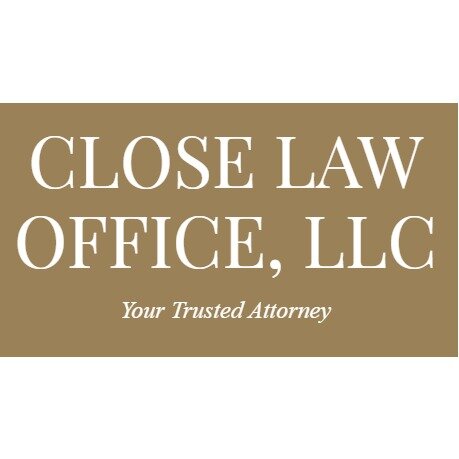Best Elder Abuse Law Lawyers in Luanda
Share your needs with us, get contacted by law firms.
Free. Takes 2 min.
List of the best lawyers in Luanda, Angola
About Elder Abuse Law in Luanda, Angola
Elder abuse law in Luanda, Angola, is designed to protect the rights and well-being of older adults, who may be vulnerable due to age, health, or dependency. The legal framework addresses physical, emotional, financial abuse, neglect, and exploitation. The government of Angola recognizes the importance of safeguarding the elderly population, which has led to the establishment of laws aimed at preventing abuse and ensuring justice for victims. Elder abuse cases can be complex, involving various legal, social, and financial aspects.
Why You May Need a Lawyer
There are several scenarios where individuals may seek legal assistance in Elder Abuse Law in Luanda, Angola:
- Suspected Abuse: If you suspect that an elder is being abused, a lawyer can help investigate and take appropriate legal actions.
- Personal Experience: If you are an elder experiencing abuse, seeking legal advice can provide protection and a pathway to justice.
- Financial Exploitation: Legal intervention may be necessary to address unauthorized use of funds or assets.
- Neglect Cases: When an elder is not receiving adequate care, legal measures can ensure proper care is provided.
- Guardianship Issues: Disputes about guardianship or conservatorship may require legal resolution.
Local Laws Overview
The legal landscape dealing with elder abuse in Angola is centered on the protection and dignity of the elderly. Key aspects include:
- Protective Legislation: Laws that specifically address elder abuse, providing remedies and protections for victims.
- Criminal Codes: Provisions within the criminal code that penalize acts of physical, emotional, or financial abuse of the elderly.
- Civil Laws: Laws relevant to guardianship, power of attorney, and related civil matters.
- Health and Welfare Statutes: Guidelines that enforce proper care, highlighting the responsibilities of caregivers and institutions.
Frequently Asked Questions
1. What constitutes elder abuse?
Elder abuse includes physical harm, emotional distress, financial exploitation, neglect, or abandonment of an elderly person.
2. How can I identify elder abuse?
Look for signs like physical injuries, sudden changes in financial status, depression, poor hygiene, or bedsores.
3. What should I do if I suspect elder abuse?
Contact local authorities or legal experts to assess the situation and determine the appropriate course of action.
4. Can elder abuse be reported anonymously?
Yes, many agencies allow you to report anonymously to protect your identity while ensuring the elder’s safety.
5. What are the legal repercussions for elder abuse in Angola?
Legal repercussions can include criminal charges, fines, and imprisonment, depending on the severity of the abuse.
6. Are there protections for caregivers who report abuse?
Yes, there are legal protections to shield caregivers from retaliation when reporting suspected abuse in good faith.
7. How is elder financial abuse proven?
This often involves examining financial records, obtaining witness statements, and legal analysis of transactions.
8. What legal steps can be taken if an elder is being neglected?
Legal steps can include filing a complaint with local authorities, seeking an injunction, or moving for guardianship.
9. Is mediation available in cases of elder abuse?
Mediation may be used to resolve disputes amicably, but criminal matters typically require formal legal proceedings.
10. Who can initiate legal action in elder abuse cases?
Legal action can be initiated by the victim, a legal representative, or close family members with standing.
Additional Resources
If you or a loved one is dealing with elder abuse in Luanda, Angola, you can reach out to the following:
- Local Social Services: Government agencies providing social services and support to the elderly.
- Non-Governmental Organizations: NGOs focused on elder rights and protection.
- Police and Legal Departments: For reporting abuse and seeking urgent legal intervention.
- Healthcare Providers: Medical professionals who can document and report signs of abuse.
Next Steps
If you need legal assistance with elder abuse in Luanda, Angola, consider the following steps:
- Contact a lawyer specializing in elder law to discuss your situation and available legal options.
- Gather any relevant documentation or evidence of abuse, such as medical records, financial statements, or witness testimonies.
- Consult with social workers or healthcare professionals for guidance and support services.
- File a formal report with local authorities to initiate an official investigation.
Taking prompt action can help protect the rights and well-being of elders facing abuse or neglect.
Lawzana helps you find the best lawyers and law firms in Luanda through a curated and pre-screened list of qualified legal professionals. Our platform offers rankings and detailed profiles of attorneys and law firms, allowing you to compare based on practice areas, including Elder Abuse Law, experience, and client feedback.
Each profile includes a description of the firm's areas of practice, client reviews, team members and partners, year of establishment, spoken languages, office locations, contact information, social media presence, and any published articles or resources. Most firms on our platform speak English and are experienced in both local and international legal matters.
Get a quote from top-rated law firms in Luanda, Angola — quickly, securely, and without unnecessary hassle.
Disclaimer:
The information provided on this page is for general informational purposes only and does not constitute legal advice. While we strive to ensure the accuracy and relevance of the content, legal information may change over time, and interpretations of the law can vary. You should always consult with a qualified legal professional for advice specific to your situation.
We disclaim all liability for actions taken or not taken based on the content of this page. If you believe any information is incorrect or outdated, please contact us, and we will review and update it where appropriate.














